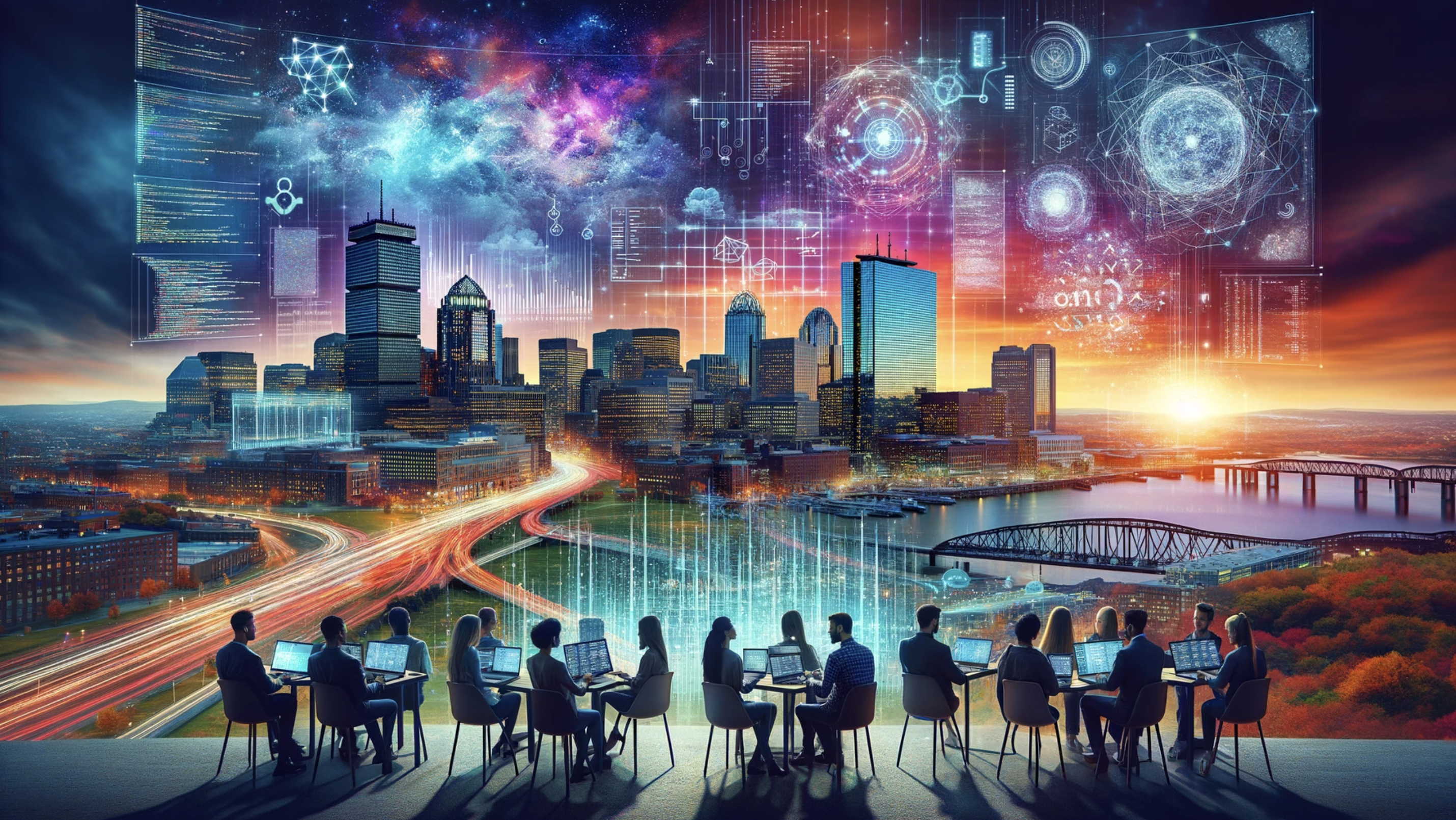AstroxML Hackathon 2024

Registration About Projects ResourcesOrganizing Committee
About
The Institute for Artificial Intelligence and Fundamental Interactions (IAIFI) is enabling physics discoveries and advancing foundational AI through the development of novel AI approaches that incorporate first principles, best practices, and domain knowledge from fundamental physics. Participants in the AstroxML hackathon, organized by IAIFI and collaborators, will team up to tackle real-world astrophysical problems leveraging machine learning. We welcome both less experienced participants and machine learning gurus looking for interesting problems to solve with AI. We promise all an exciting week of caffeine-fueled coding sessions. Lunch and refreshments will be provided.
- January 22–24, 2024
- MIT Stata Center
- Registration is now closed. Email us to inquire about availability.
Projects
Details for the projects will be provided soon. Topics for the projects will include:
- Generative everything: Understand the generative model paradigm, and learn how to train diffusion generative models for a dataset of your choosing. Explore their utility for emulation, likelihood evaluation, posterior estimation, and anomaly detection.
- Simulation-based everything: Build up the tools necessary to do simulation-based (or likelihood-free) inference. If you have a forward model or simulator for your data and are sick of losing information by using summary statistics, this may be for you!
- Multimodal everything: Understand how to train joint embeddings across or within modalities. Examples: (1) images + spectra + light curves, or (2) the same object observed by different instruments. Explore the structure of joint embeddings and how to use them for various downstream tasks. Bring your own multi-modal datasets!
- Anomaly detection: Extract informative features and build lower-dimensional representations of your dataset to find the rarest and strangest instances! We’ll hack models for zero-shot and few-shot learning.
- Super resolution everything: Enhancing the resolution of simulations that are too expensive to run at high resolution, for example hydrodynamical simulations of galaxy formation.
Resources
- To make the most out of the event, we recommend familiarizing yourself with basic machine learning workflows in PyTorch in advance. Introduction to PyTorch from the UvA Deep Learning tutorials is a good starting point. Other notebooks in the tutorial series are also great – feel free to explore!
- Gilles Louppe’s Deep Learning course is another good resource with short lecture slides and notebooks.
- If you are interested in the “Generative everything” hack project, the deep auto encoders and normalizing flows tutorials.
- For “simulation-based everything” check out this tutorial.
If you are looking for inspiration on interesting projects at the intersection of machine learning and astrophysics check out these resources:
Code of Conduct
Participation will be subject to the IAIFI Code of Conduct. In addition, we expect participants to adhere to the following open collaboration policy, inspired by the Gaia Sprints:
Participants will be expected to openly share their ideas, expertise, code, and progress. Any participant contributing significantly to a project can expect co-authorship on resulting scientific papers, and any participant receiving significant contributions to a project is expected to include those contributors as co-authors. This policy discourages working with proprietary data or code at the event, unless permission is secured to bring these assets out into the open.
Organizing Committee
- Riccardo Arcodia (rarcodia@mit.edu)
- Dillon Brout (dbrout@bu.edu)
- Carolina Cuesta-Lazaro (cuestalz@mit.edu)
- Alex Gagliano (gaglian2@mit.edu)
- Siddharth Mishra-Sharma (smsharma@mit.edu)
- Daniel Muthukrishna (danmuth@mit.edu)
- Yueying Ni (yueying.ni@cfa.harvard.edu)
Contact iaifi@mit.edu or any of the organizers with questions.